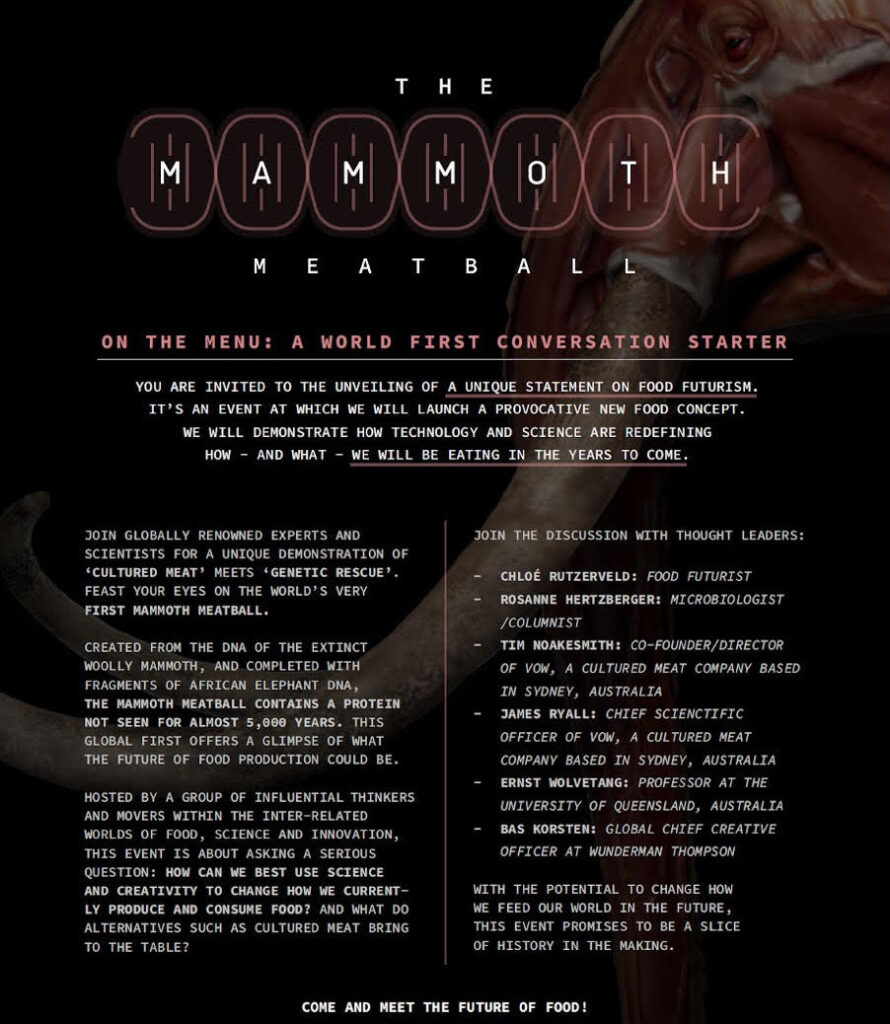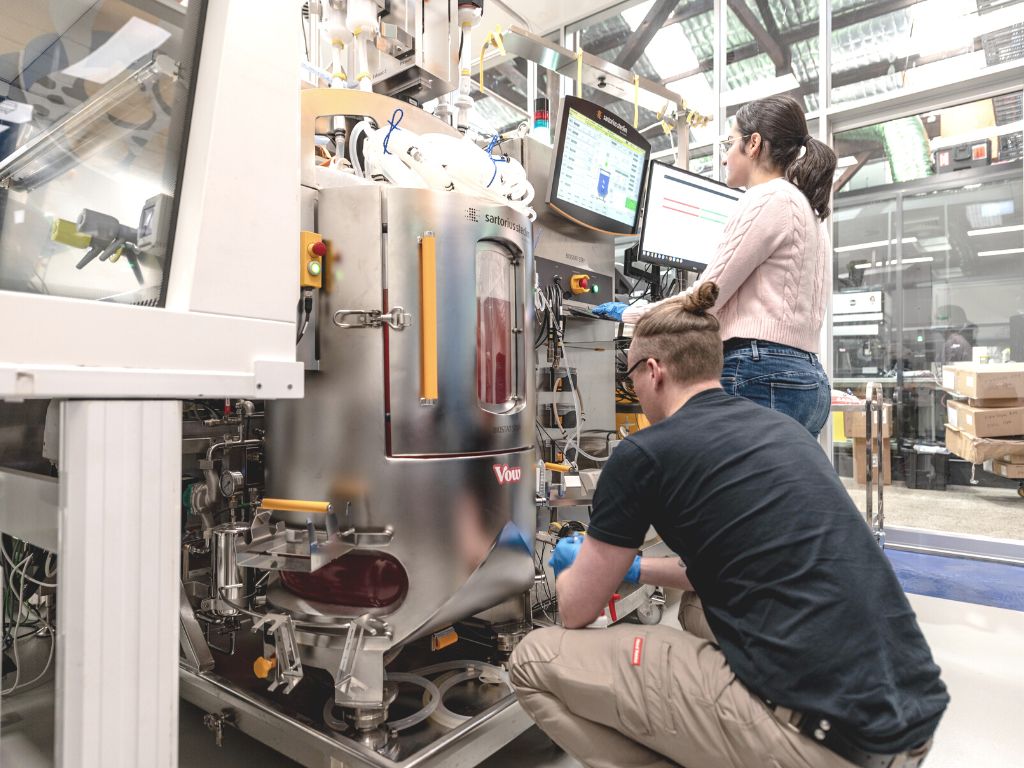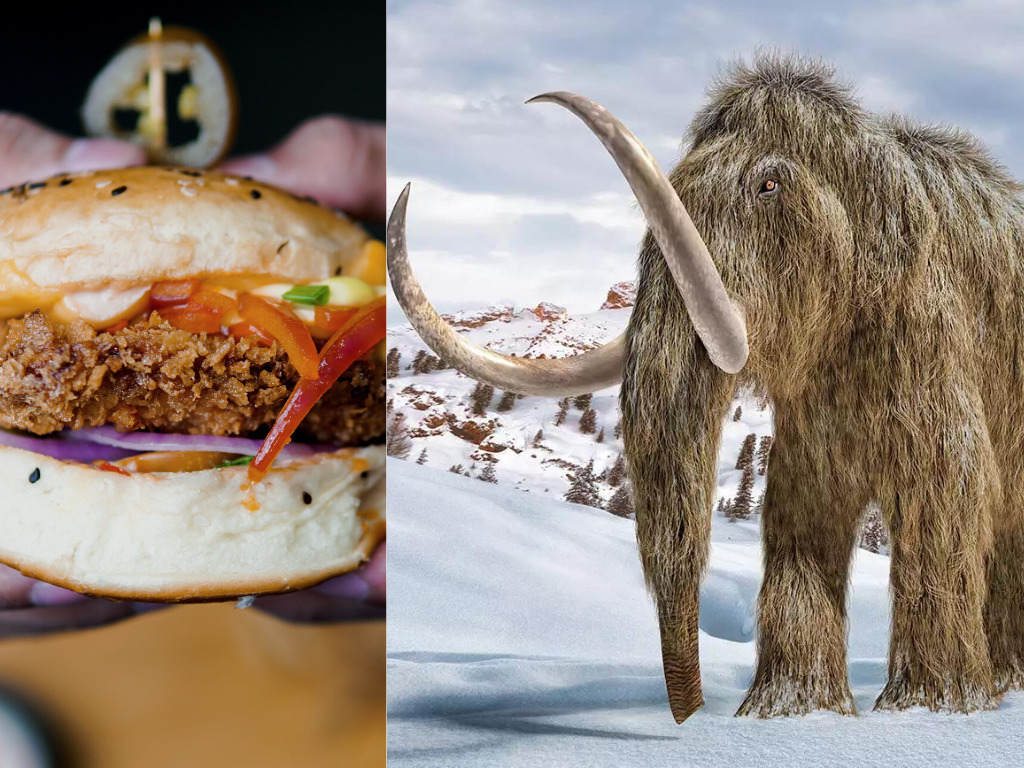4 Mins Read
Australian cultivated meat company, Vow, has created a meatball using cells from the extinct wooly mammoth as part of a project to showcase the potential of cellular agriculture.
Vow’s mammoth meatball is a token product showing not just how cells from unconventional species can create new kinds of meat, but also as a symbol of both biodiversity loss and climate change.
Mammoths went extinct in large part due to human hunting as well as post-ice-age planetary warming. The novel meatball was unveiled on Tuesday at the Nemo science museum in the Netherlands.
“We have a behaviour change problem when it comes to meat consumption,” Vow CEO George Peppou said in a statement.
“The goal is to transition a few billion meat eaters away from eating [conventional] animal protein to eating things that can be produced in electrified systems.
“And we believe the best way to do that is to invent meat. We look for cells that are easy to grow, really tasty and nutritious, and then mix and match those cells to create really tasty meat.”

Cultivating curiosity
While most cultivated meat producers are tackling conventional meat such as chicken, pork, beef, and fish, Vow is taking a different approach by investigating the potential of more than 50 less common species, including alpaca, buffalo, crocodile, kangaroo, peacocks, and various types of fish. Tapping into human curiosity to taste less conventional meat could help acclimate consumers toward the novel cell tech, the company says.

The mammoth muscle protein was created by Vow along with Professor Ernst Wolvetang at the Australian Institute for Bioengineering at the University of Queensland. The team used DNA from mammoth myoglobin, a key muscle protein that gives meat its flavor, and filled in a few gaps using elephant DNA. This sequence was placed in myoblast stem cells from a sheep, which replicated to grow to the 20 billion cells subsequently used by the company to grow the mammoth meat.
“It was ridiculously easy and fast,” said Wolvetang. “We did this in a couple of weeks.”
Mammoth was the second choice. The initial idea came from Bas Korsten at the creative agency Wunderman Thompson. The team wanted to replicate dodo bird meat, but there is no DNA available for replicating.
Mammoth worked just as well symbolically though. “Our aim is to start a conversation about how we eat, and what the future alternatives can look and taste like. Cultured meat is meat, but not as we know it,” Korsten said.
Vow is not the first food tech company to explore mammoth protein. Last year the startup Paleo explored creating woolly mammoth “paleo protein” via its novel precision fermentation heme technology. And the biotech company Colossal is using CRISPR technology to potentially resurrent the species, which it says could play a crucial role in protecting ecosystems that trap and store carbon.
Cultivating sustainable protein
Like other cultivated meat offerings, Vow says cultivated meat uses much less land and water than livestock and produces no methane emissions. The energy Vow uses is all from renewable sources, and the company does not use the controversial growth medium, fetal bovine serum.
No one has tasted the mammoth meat yet, though. “We haven’t seen this protein for thousands of years,” said Wolvetang. “So we have no idea how our immune system would react when we eat it. But if we did it again, we could certainly do it in a way that would make it more palatable to regulatory bodies.”

Vow was moving toward approval last year for its cultivated quail meat, dubbed Morsel. It had anticipated an end-of-2022 launch into Singapore restaurants, but it has yet to be approved by Singapore Food Agency (SFA).
The mammoth meatball debut comes as the U.S. FDA issued a “no questions” letter to California’s Eat Just for its cultivated Good Meat label chicken. Eat Just is currently the only cultivated meat producer in the world with regulatory approval, which was granted by the SFA in 2020.
Eat Just and fellow Californian cultivated meat producer Upside Foods, which received FDA clearance last November, now must both pass USDA inspections before they can begin selling their meat in the U.S.




